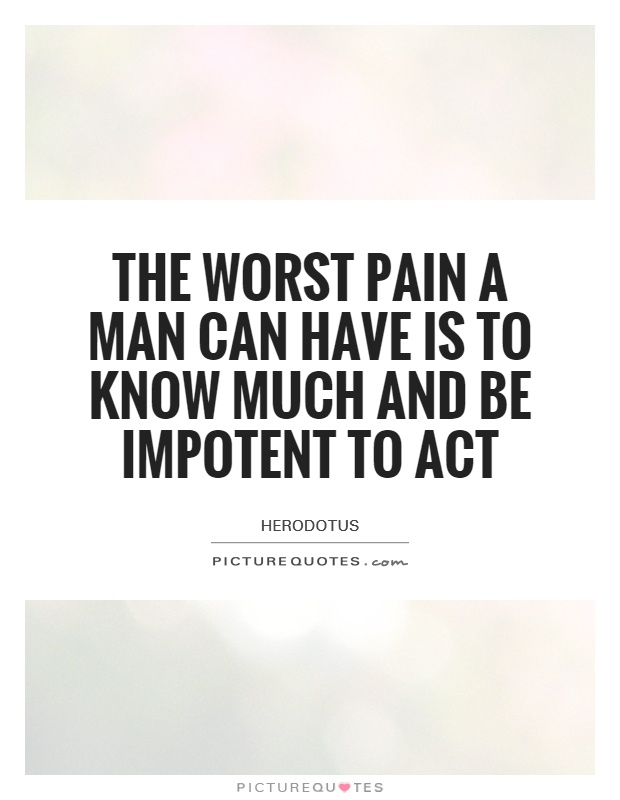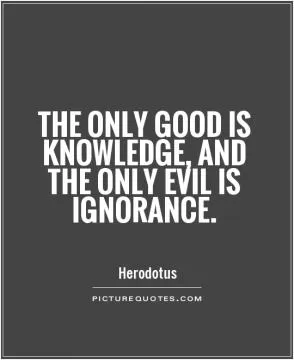The worst pain a man can have is to know much and be impotent to act

The worst pain a man can have is to know much and be impotent to act
Herodotus, often referred to as the "Father of History," was a Greek historian who lived in the 5th century BC. He is best known for his work "The Histories," which chronicled the Greco-Persian Wars and provided valuable insights into the cultures and societies of the ancient world. In his writings, Herodotus often explored the themes of power, knowledge, and agency, and his observations on the human condition continue to resonate with readers today.One of the most poignant statements attributed to Herodotus is the idea that "the worst pain a man can have is to know much and be impotent to act." This sentiment speaks to the frustration and helplessness that can come from possessing knowledge or understanding but lacking the ability to effect change or make a difference. In the context of Herodotus' work, this idea can be seen as a reflection of the power dynamics and political struggles that were prevalent in the ancient world.
Throughout "The Histories," Herodotus recounts numerous instances where individuals or groups were faced with difficult decisions or challenges that required them to act decisively. Whether it was the Persian king Xerxes' invasion of Greece or the Athenians' struggle for survival against the mighty Persian Empire, the characters in Herodotus' narratives often found themselves in situations where knowledge alone was not enough to secure victory or success.
For example, in the story of the Battle of Thermopylae, the Spartan king Leonidas and his small band of warriors were well aware of the overwhelming odds they faced against the Persian forces. Despite their knowledge of the enemy's strength, they chose to stand and fight to the death, knowing that their sacrifice would inspire future generations and rally the Greek city-states to unite against the common threat.












 Friendship Quotes
Friendship Quotes Love Quotes
Love Quotes Life Quotes
Life Quotes Funny Quotes
Funny Quotes Motivational Quotes
Motivational Quotes Inspirational Quotes
Inspirational Quotes